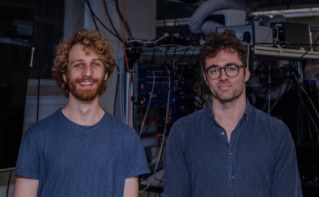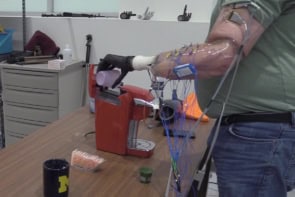
“Digitalization is creating a deluge of data,” former Labour politician, and current chief executive officer of Sensyne Health Paul Drayson told attendees at a briefing led by the Oxford Local Enterprise Partnership (OxLEP) in the House of Commons in London, UK, on Tuesday 19th March. While this is true in a number of sectors, in health the nature of the data subjects – human patients with all their unique nuances and inconsistencies – raises additional challenges in data quality where they may often be missing fields and errors in the data. “The only way to deal with this is AI and machine learning.”
The briefing “Where next for digital health?” presented a tour de force of some of the business success stories forged in the alliance of digital technologies and healthcare providers. As well as the use of AI to extract meaningful trends from vast quantities of data, speakers highlighted the role of virtual reality and apps, such as software to guide patients to reliable information online, circumnavigating websites that can escalate patient anxiety. Pointing out some of the problems with “Dr Google”, founder of doctors.net.uk and chief executive officer of the Cognitant group Tim Ringrose said “Online misinformation can cause more harm than good.” He added that a lot of patients are looking for something that will direct them to the information their doctor would give them, but if you go to your GP you are likely to be handed a print out of the relevant web page, a practice that can seem archaic in the context of the way many people now access information.
These technologies have benefits for both providers and users of health services. As Ringrose highlighted better informed patients can be dealt with more efficiently, and apps that help patients manage their conditions from home can greatly help ease the strain on health service resources. He also described use of virtual reality, not only in pain relief – such as the use of a virtual world of ice and snow fights to attenuate the activity of pain receptors during a dressing change for a heavily burnt 911 fire fighter – but also for training surgeons. Virtual reality exposes trainees to the emotional as well as the practical experience of surgery without the need to wait for a medical emergency.
Despite the solutions digital technologies offer they also raise new challenges. “In AI politics and technology come together,” said Drayson. “Technology for all AI algorithms introduces bias and if we don’t think about it we miss a very important point. There’s no reason why AI shouldn’t be regulated in the same way as a new pill for instance – we shouldn’t accept black boxes.” Drayson went on to point out that awareness of ethical issues in AI programming highlights additional requirements around alignment with societal values, and the possible unintended impact of buying into AI technologies from abroad. “Can we develop our own software in ways that are in tune with the NHS [National Health Service] and our society and values or will we get an NHS colonized with software from other countries?”
A machine-learning revolution
Silicon Valley in Oxfordshire
OxLEP believe Oxfordshire has a crucial role to play in securing homegrown digital technologies for the UK. The county is home to scores of digital health companies and many allied stakeholders across industry, academia, the NHS and the voluntary sector. As several of the speakers at the briefing point out, Oxford benefits from world class expertise in engineering, information science, and medicine – the key ingredients for developing digital technologies for healthcare – and the colocation of the University just across the road from the hospital helps researchers, doctors and nurses to reach a unilateral interdisciplinary understanding of technology requirements and capabilities. “People who come say it’s like coming to Silicon Valley in Oxfordshire,” said Lord Drayson.
The University of Oxford’s Innovation Technology Transfer has already helped to build 25 companies including Drayson’s Sensyne Health, illustrating a change in the role of universities, and the University of Oxford in particular, which are increasingly playing a key part in the incubation of businesses. However, Drayson points out that the strength of digital technology businesses tends to scale exponentially with the number of members so that the winner takes all. “Do MySpace and Friends Reunited even exist still?” he asked, taking facebook as an example. As a result these businesses face an additional hurdle beyond the so-called valley of death between lab and clinic. To compete internationally presenting a good option is not enough, digital technology businesses need to be number one.




